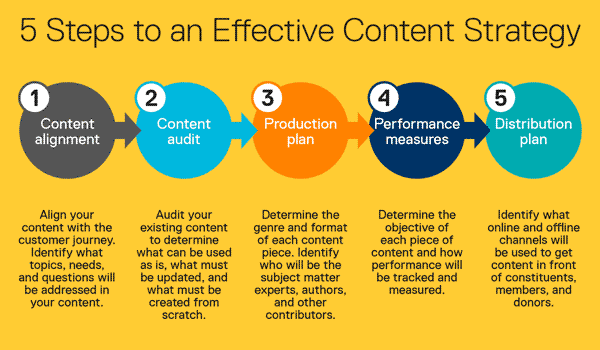Home » Blog » 8 Kickass Things To Know About SEO Content Writing For Your Business

8 Kickass Things To Know About SEO Content Writing For Your Business
The digital world we live in today has revolutionized our day-to-day activities in our personal and business activities.
Businesses are now able to bring in more customers via online tools and platforms.
Many small business owners have become interested in finding out how they can use their websites and blogs to grow and achieve their goals. You’re here because you’re one of them.
Quite frankly, purely having a business website these days doesn’t make the cut.
There’s a lot of advice you can find online about how you can achieve your business goals using various strategies. In short, you’re going to invest a chunk of your time and money.
However, as a small business owner, you might not have a lot of these at your disposal. This is why it’s essential that you find effective yet cost-friendly search engine optimization services.
SEO content writing has to be the most robust tool available for business owners. This strategy not only helps you rank on search engine results but also significantly lowers your marketing and advertising budget.
“A strong online presence is vital to effectively communicating with potential customers. What most organizations tend to miss out on is that 70% of consumers prefer to learn about a company through articles, as opposed to other types of advertisement.”
Katrina McKinnon,
Founder, CopySmiths
Of course, you can’t simply paste a bunch of keywords on your landing page and expect your target market to come in droves.
This is why you need to hire professional SEO copywriting services.
Here are 8 kickass considerations about SEO for your business, we’re confident something here will inspire you.
Choose Seo Content Writing Over Regular Content
You must have already heard or read from an SEO content marketing guru that owning a blog is one of the most effective digital marketing techniques. However, not all forms of content writing will give you the same results.
SEO copywriting involves meticulously crafting high-quality content with appealing search engine algorithms and human readers as the end goal. Google loves SEO content that helps people solve their problems and answer their questions.
As such, if you tailor your SEO content around your audience’s needs, the search engines reward you by ranking your content.
There’s more to it; writing for SEO also involves other ranking factors, such as adhering to search engine guidelines. This helps make it easier for algorithms and website crawlers to find your SEO content and rank it when a user searches for your keywords.
On the other hand, regular content writing does not always have to conform to SEO guidelines. Don’t get us wrong; the content may still be top-notch and instrumental in boosting your conversion rate.
However, such content will not rank on search engines or bring organic traffic to your website.
In a nutshell, SEO content is optimized for search engines and helps generate organic traffic, while regular content isn’t.
Have in mind that simply and quickly updating your blog is never enough. Regular content might not make the cut. On the other hand, SEO copywriting will always generate the results you’re looking for.
Now that we have gotten that out of the way, how can you ensure that writing SEO content works for you?
Content is Always King

While we don’t mean to push it down your throat like the last SEO guru, content has and will always be king. Why?
When this term first came into use, content was used to level the playground between small businesses and large corporations.
Decades later, businesses and websites with the best content rank high on SERPS (search engine results pages), and are successful in their marketing and building an online audience.
To succeed today, you need to provide valuable, engaging, and actionable content to your readers.
Always remember that no matter what kind of content you might include on your website, it has the potential to blow up and reach larger audiences. You might as well ensure that the content is interesting.
Your readers first scan your content before they read it. Here are a few tips to ensure your content is remarkable:
- Break down your content to bullet points (like I’m doing here). Organize your most important points into headings and use short but punchy paragraphs.
- Humans are visual beings. Your readers will get bored with large chunks of text regardless of how informative your content is. Include interesting images that are not only appealing but also relate to the content. This will add a lot of value.
- Include authority links that educate your reader more on the content or specific topics.
Also, remember to make your content valuable enough so that it’ll be linked to by other writers and get shared by your readers
Always Carry Out Keyword Research
Keywords play a vital role when optimizing your content for SEO.
If you want to make Google notice your content, you might want to search for the keywords to include in your content.
Keyword research refers to the process of finding and scrutinizing phrases and terms people use while searching on Google, with the goal of using the words for a certain purpose. More often than not, this purpose is usually search engine optimization.
Primarily, you want to find queries with a high search volume yet low competition, then use them in your content.
Keyword research is usually pretty much straightforward. You can choose to trust your instincts and come up with a list of phrases or use free and paid tools for this purpose.
One of the most used tools for this purpose is the Google AdWords tool.
However, be careful when using this tool as it’s created to generate a list of keywords to bid on. As such, it may not always be accurate, but it gives you a kickstart and loads of ideas.
Surfer SEO and Ubersuggest are other great tools you can use for this purpose.
When getting SEO writing services to write content, make sure your copywriter uses the keywords but avoids keyword stuffing. As they’re writing based on a given topic, they’re likely to end up using the keywords automatically in the content.
Otherwise, they’ll have to incorporate them creatively.
Keyword stuffing makes your content look unprofessional.
Remember that you want your content to always read naturally and make sense to the reader.
Suitable Content Length for SEO Content
Many experts say that search engines give preference to SEO content that has achieved a particular length. While there’s no official length that you should always aim to achieve, Google loves long content.
A good rule of thumb is to ensure that your SEO content length is between 1,000 and 1,500 words. 2,000+ articles may be the best.
Why Does SEO Content Length Matter?
Longer SEO content with more words almost always means more authority. This means that your target audience stays in your blog for longer, as they get all the content at one place without having to go anywhere else.
Longer content also leads to more social engagement, hence a higher conversion rate.
Such factors tell Google that your content offers more value to your readers and answers their questions.
However, you don’t have to sweat too much on this. The ideal length is determined by factors such as the topic, your competition, and keywords.
Search engines generally prioritize readers’ engagement over content length. You might have a 2,000+ word article but readers don’t spend much time on it.
In cases like these, Google will assume your content doesn’t answer their questions.
Use Meta Descriptions
Always ensure that all the SEO content you post on your website or blog has meta descriptions.
Although meta descriptions might not be as important for ranking, they’re vital for gaining a high click through rate from SERPS.
There’s no guarantee that Google will show your meta description, but there’s a chance that it might display. You might as well put in some effort to add it to your page.
What Is a Meta Description?
This is an on-page optimization method where a short text is embedded into the HTML of a webpage. This text describes the content on that particular page. It gives the users a brief description of the kind of content they’ll find on that specific page.
Initially, the length of these snippets was capped at 160 characters. However, Google revised this requirement upwards to 275 characters.
Here are some of the characteristics of a good meta description:
| Characteristic | Description |
| Active voice | Always think about your target audience and their intentions to click on your page. Your meta description should clearly outline what they should expect to find. |
| Call-to-action | This might look like a contrast to the point above, but you could use it as your sales text. Include phrases such as “find out more, “try it for free” and “get it now.” |
| Include your Keyword | Google is more likely to display your meta description on the first page if it includes a search keyword. Google might even highlight synonyms and make your link more inviting. |
| Ensure it matches your content | Some content writers might use suspicious means to trick users into clicking your link. This increases your bounce rate as users find unrelated content on your blog. Besides, Google could penalize you if they found out. |
If you manage your blog on WordPress, you can use the Yoast SEO plugin for this purpose.
Cheap Isn’t Always Better
If you’re running on a shoestring budget you might feel compelled to hire cheap SEO content writing services. After all, most services allow you to choose a package.
However, high-quality SEO copywriting might need you to pay more. Remember you always get what you pay for.
If you consider your business website as an investment, consider paying higher to get SEO friendly content.
Think about it this way; how much time and effort do you think goes into writing and optimizing your content? How much would you like to get paid for such work?
Come Up With An SEO Writing Plan
When you hire an SEO content writer to write for your site, their job is to craft the kind of data you need and optimize it for search. Unless you’ve agreed otherwise, they won’t go looking at your website and decide what kind of content you need.
It’s your job to come up with a content strategy.

Source: techsoup.org
With an SEO content marketing plan, your copywriter will know which topics and the kind of content to write next.
Don’t just come up with general ideas or themes. While this might help give you a distinct direction, you want to give your content writer a keyword to use.
Of course, you might acquire content writing services that handle everything including your SEO content strategy. For these kinds of packages, you’ll have to pay more.
Learn to Say No!
We know, we know. It’s hard to say no to people. Even harder to reject work that’s already done.
However, also remember that low-quality articles can actually lower your Google rankings.
Most SEO writing services have quality control strategies, where written content has to pass through layers of editing before approval. However, you also need to be able to turn down content that doesn’t align with your strategy or fit your site.
While this might be difficult, you need to put your business first before anything else. If it’s just a few minor revisions, simply ask the writer to carry out some revisions.
If the content still doesn’t make the cut, it’s time for you to hire another SEO copywriting service.
Looking for Top-Notch SEO Copywriting Services?
Now that you’ve known how to implement SEO content marketing techniques for your business, you’re ready to get into action and hire a service that will take care of both SEO and content.
Primarily, you want to work with a service that has a proven track record and remarkable samples to boot.
Hire a skilled agency that will get your SEO friendly content done on time and on budget.
CopySmiths
I'm Katrina McKinnon, founder of CopySmiths and Small Revolution. In my 20 years of experience, I have helped online businesses create high-performing content specifically on an eCommerce store's blog. Find me on LinkedIn and Twitter.

CopySmiths offers the best blog writing services for online stores.
If you'd like us to write blog articles for you, click here.
Most Recent
- 3 Bold Questions You Should Ask When Hiring A Content Writer

- 5 Practical Reasons You Should Use a Blog Post Template

- 4 Amazing Benefits of Using a Title Generator for New eCommerce Blogs

- 10 Awesome Bio Examples Your Online Store Blog Should Emulate

- 8 Basic Steps to Successful Content Development Every Time

Podcasts
Got a question?
Ask our friendly team about our article writing services.
Subscribe to CopyZine
Monthly, hand-picked stories of the best in eCommerce Content.




